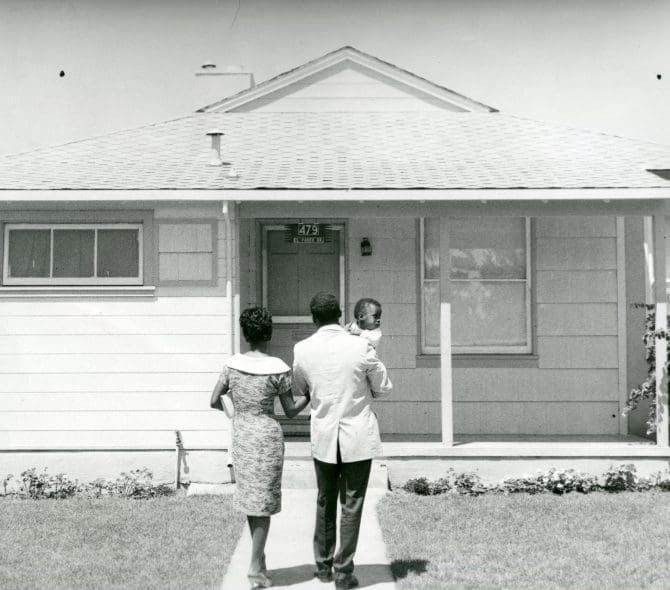
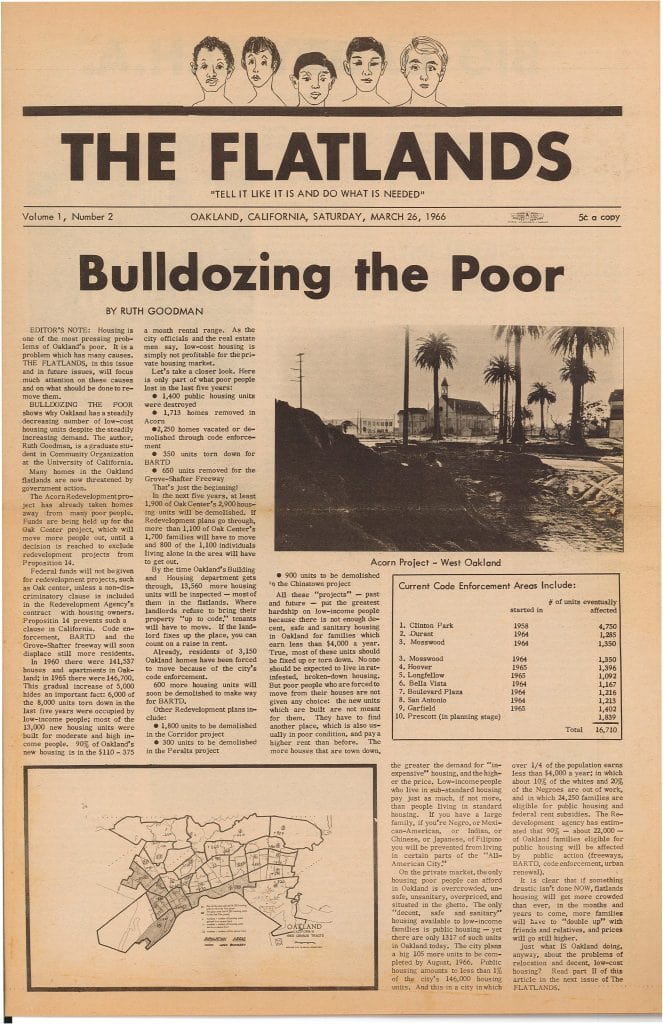
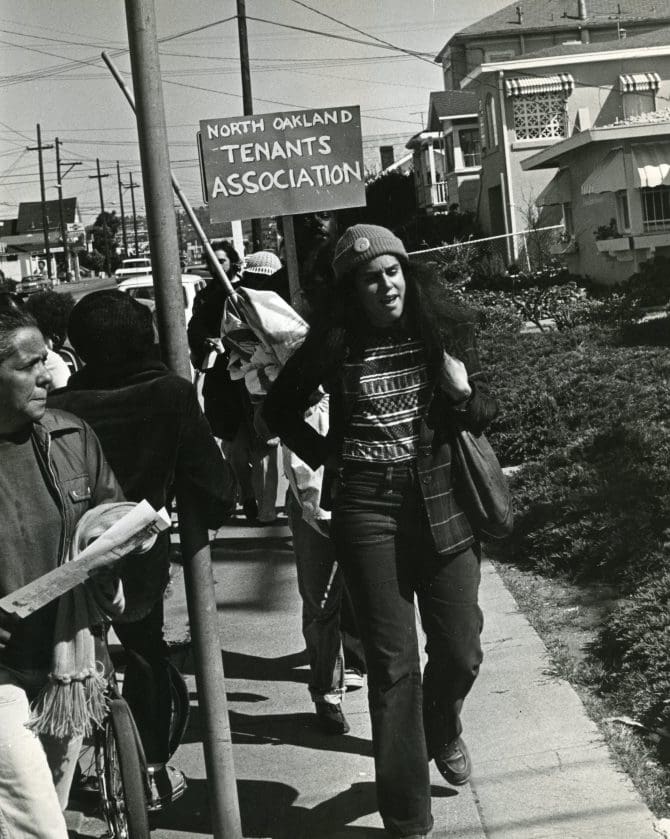
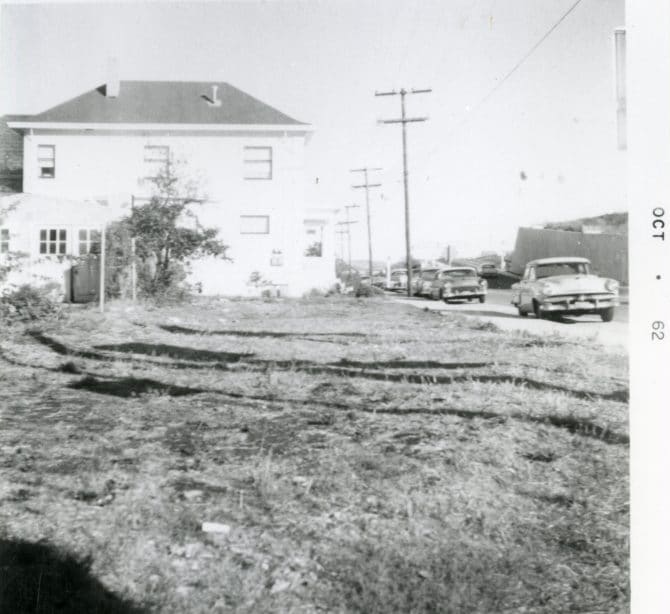
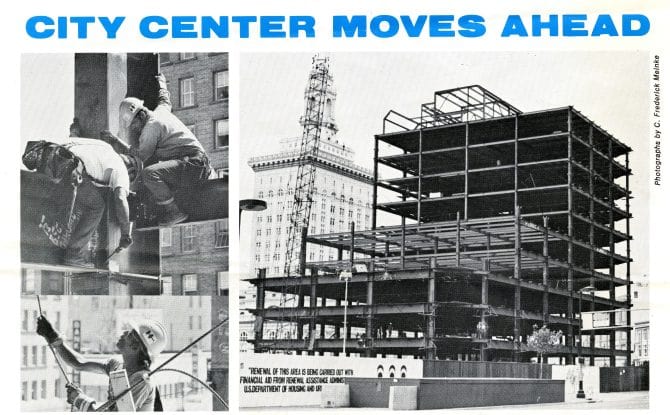
Prepare for a visit to AAMLO with these special topic resource guides.
This resource guide is intended to help users locate holdings at AAMLO related to gentrification and the displacement of Black and brown communities. Please see the resource guide on Seventh Street (Oakland, Calif.) for selected items related to racial violence and displacement along West Oakland's historic 7th street.
It highlights holdings in the following areas:
● Selected Library Material at AAMLO
● Selected Archival Collections at AAMLO
Other collections may contain relevant materials. Please contact AAMLO (aamlo@oaklandlibrary.org) with any questions or to schedule an appointment to view materials in person.
Selected Library Materials
Gentrification in West Oakland: Causes, Effects and Best Practices by Todd Harvey
Development Without Displacement: Resisting Gentrification in the Bay Area by Causa Justa--Just Cause
Counterpoints: A San Francisco Bay Area Atlas of Displacement & Resistance by the Anti-Eviction Mapping Project
Rebuilding the Urban Structure of the Inner City: a Strategy for the Repair of Downtown Oakland, California by the Institute of Urban and Regional Development, University of California at Berkeley
Redeveloping Oakland: Reassess, Reevaluate, Rebuild, Revitalize by the Oakland Redevelopment Agency
A City for Children: Women, Architecture, and the Charitable Landscapes of Oakland, 1850-1950 by Marta Gutman
The Problem of the Negroes in Oakland by Mills College, Dept. of Economics and Sociology
Golden Gate Neighborhood Conditions by Common Archives
American Babylon: Race and the Struggle for Postwar Oakland by Robert O. Self
The Color of Law: a Forgotten History of How Our Government Segregated America by Richard Rothstein
The Impact of Redevelopment on the Low-income People by the Center for California Studies
Streetwise: Race, Class, and Change in An Urban Community by Elijah Anderson
White Papers, Black Marks: Architecture, Race, Culture edited by Lesley Naa Norle Lokko
Displacement of Lower-income Families in Urban Areas Report by the Department of Housing and Urban Development
Black Food Matters: Racial Justice in the Wake of Food Justice edited by Hanna Garth
Welcome to the Neighborhood [DVD]
Take Back the Block by Chrystal D. Giles
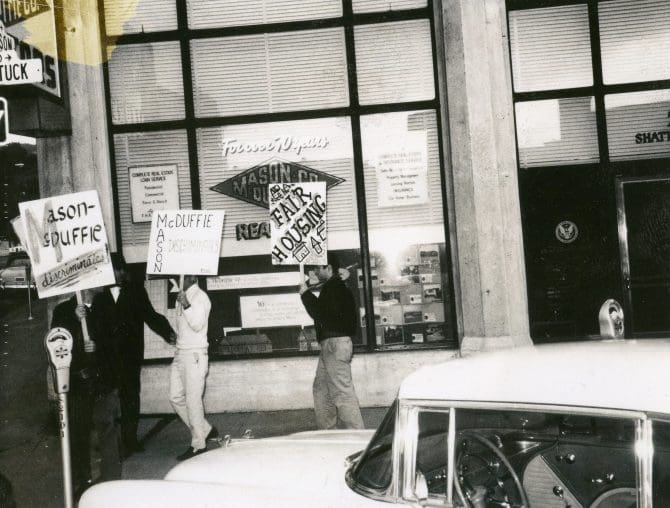
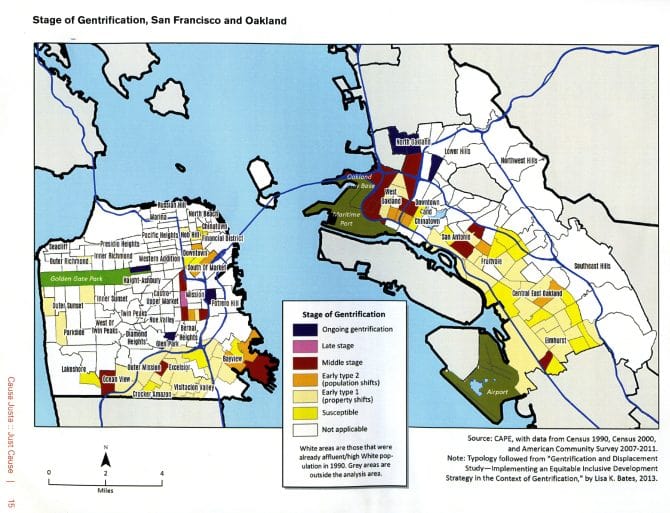
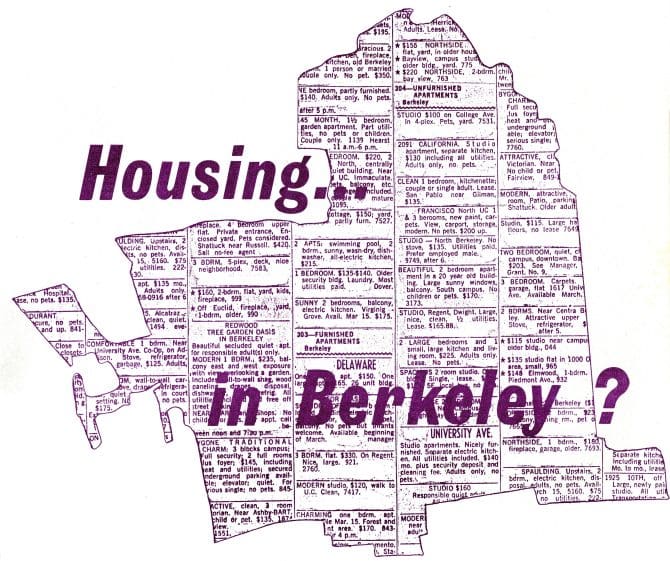
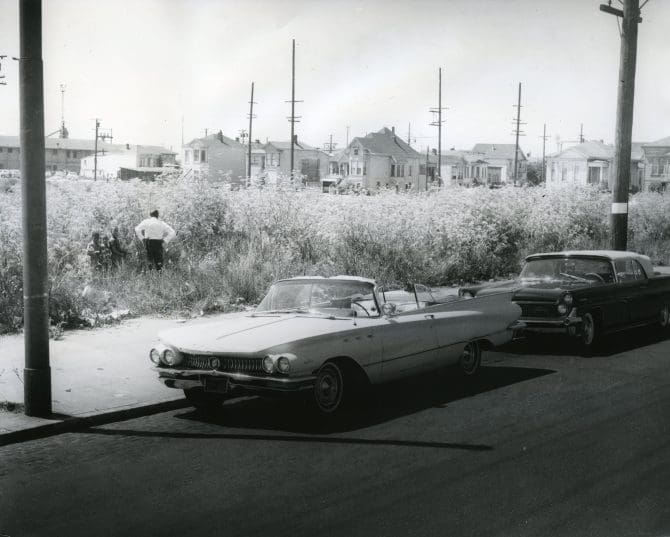
Selected Archival Collections
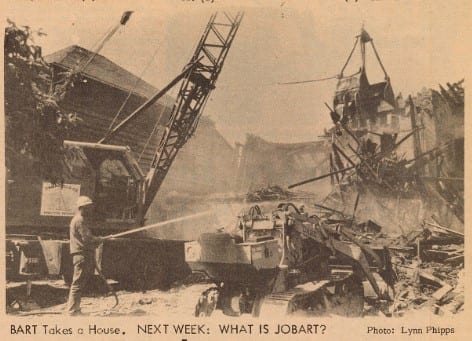
Stephens Family Papers. The Stephens Family Papers consist of photographs and ephemera documenting Stephens Restaurant, and the achievements of Virginia Stephens Coker (1903-1986). The papers also include a typescript draft of a letter William Stephens wrote in 1931 regarding opposition to his purchase of a house in Oakland, an example of housing discrimination common to the era. [View online]
The Flatlands Newspaper Collection. The Flatlands newspaper was an independent newspaper printed in Oakland from 1966-1968[?] and focused on issues related to poverty, education, housing, police brutality, and politics in East and West Oakland. The newspaper’s slogan was “tell it like it is and do what is needed” and advocated for government accountability and reform for those affected and displaced by housing developments and Bay Area Rapid Transit (BART). [View online]
Oakland Economic Development Council Newsletter Collection. The Oakland Economic Development Council was a local agency established in 1965 to implement programs associated with the Office of Economic Opportunity and the ‘War on Poverty’ in Oakland, California. The council’s programs were funded through Office of Economic Opportunity and Ford Foundation grants and were administered at Neighborhood Service Centers in North Oakland, West Oakland, East Oakland, and Fruitvale. Programs included family planning clinics, preventative health programs, legal aid services, job training, remedial instruction, small business development, dental and eye services, head start and day care, youth employment, and emergency aid and housing for women and children. [View online]
Robert B. Pitts Papers. Robert B. Pitts (1909-1982) was the first regional administrator of the United States Department of Housing and Urban Development and an advocate for housing and urban development. He joined the Public Housing Administration first as an assistant regional economist in 1947. A year later he was hired as the racial relations officer in the San Francisco office of the Public Housing Administration, where he wrote reports and provided analysis and outreach to low-income and minority communities in the department’s western district. Pitts served as racial relations officer until 1957, when he subsequently served as a market analyst (1957-1961), assistant to the regional administrator, Housing & Home Finance Agency (1961-1962), and deputy regional administer (1962-1964). In 1964, he was promoted to regional administrator, Housing & Home Finance Agency (1964-1966), where he coordinated the agency’s housing programs in eleven Western states. He was also assigned by the first secretary of Housing and Urban Development, Robert A. Weaver, to coordinate the organization of the department, serving as the chair of the task force for regional offices in 1966.
In 1966, Pitts was appointed as the first regional administrator of the newly created U.S. Housing and Urban Development Department, a position he would hold until his retirement in 1970. As regional administrator, he advocated for federal funds to support urban development projects, and he was instrumental in the rebuilding of Watts following the 1965 riots. He encouraged and approved the rebuilding of the 103rd St. corridor which included the Neighborhood Development Center, Economic Resources Industrial Park, Multipurpose Child Development Center, and over 2,000 housing units. He also served as the chairman of the San Francisco Federal Executive Board and oversaw the two volume report An analysis of federal decision-making and impact: the federal government in Oakland. The Robert B. Pitts papers consist of speeches, housing reports, articles, correspondence, programs, photographs, and newspaper clippings documenting the Pitts' life and career.
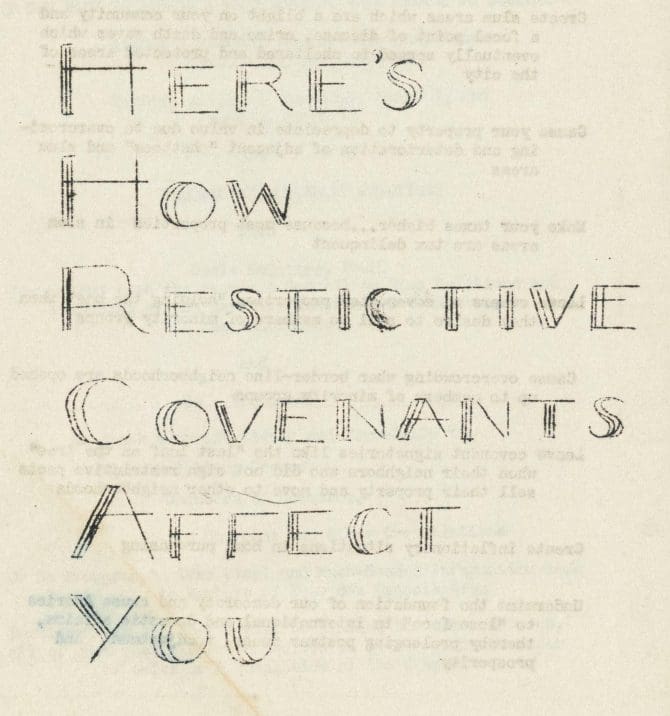
Cottrell Laurence Dellums Papers. In the 1940s, Cottrell Laurence Dellums (1900-1989) joined the NAACP and worked with local branches to combat racial discrimination. He was elected the first President of the West Coast Region of the NAACP in 1948. In 1959, Dellums received an appointment from Gov. Edmund G. Brown to serve on the newly established California Fair Employment Practices Commission. He became involved in investigations concerning racial discrimination in employment and housing and participated in working for the passage of the California Fair Employment Practices Act, the first anti-discriminatory law issued in the country. Included in the Cottrell Laurence Dellums Papers is a transcript of C.L. Dellums' testimony before the governor's Committee on Fair Housing on December 7, 1966, as well as printed materials collected by Dellums concerning fair housing law. [View online items]
Frances Albrier Papers. Among her many notable civic achievements, social activist and community leader Frances Albrier (1898-1987) served on the Committee for Fair Housing to help pass Berkeley's 1963 fair housing referendum and on the Board of Directors for the South Berkeley Model Cities Neighborhood Council (1969-1974) representing the senior citizens of Berkeley. Albrier was a tireless campaigner for open housing in her work in politics, women’s organizations, and civil rights issues, where she served as president of many Bay Area organizations and co-chairing local political campaigns. The Frances Albrier Papers include records documenting Albrier's participation with Berkeley Neighborhood Legal Services and the South Berkeley Model Cities Program, among others.
Tarea Hall and William Pittman Papers. Noted civil rights leader Tarea Hall Pittman (1903-1991) was an active member of the NAACP serving in various roles as an officer of the Alameda County Chapter of the NAACP, Regional Director of the West Coast Region, and Regional Acting Secretary of the NAACP. With Pittman as regional director of the NAACP from 1961 to 1965, the organization spent much of the 1960s fighting for fair employment and fair housing laws including Fair Housing Law [The Rumford Act] campaign events.

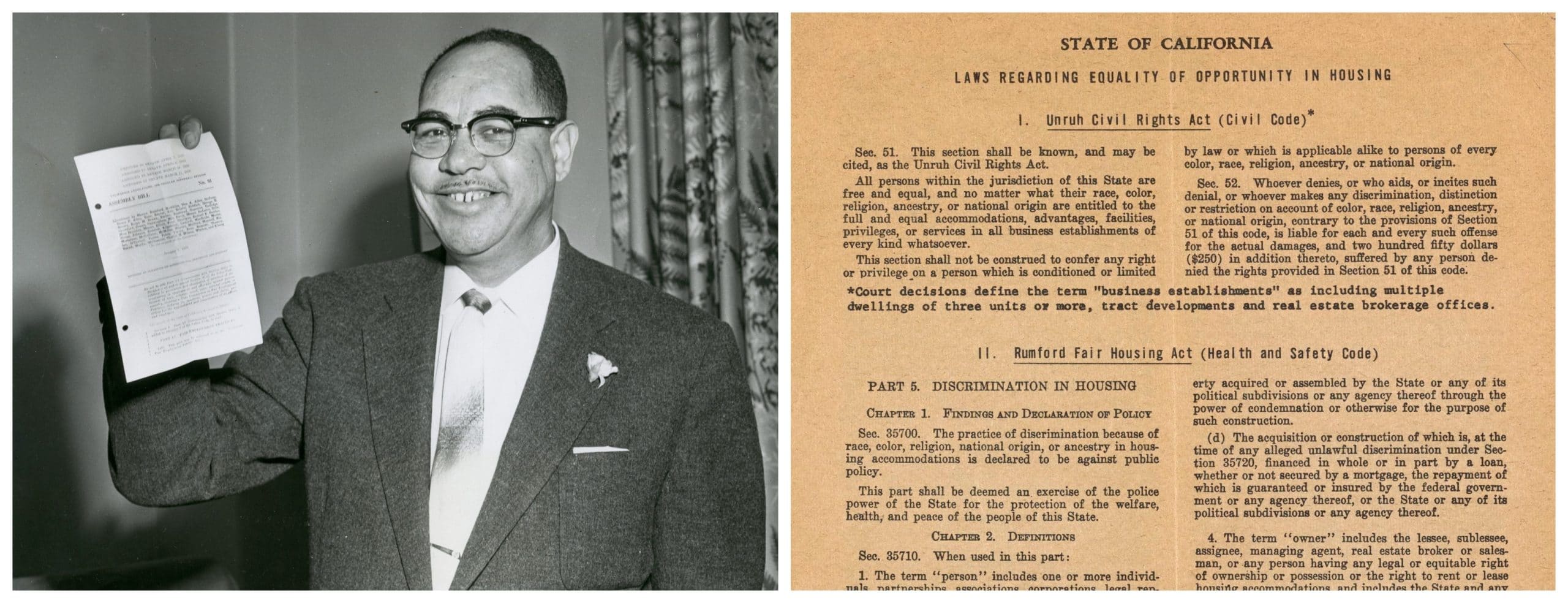
Virna M. Canson Papers. Virna Mae Canson (1921-2003) was instrumental in many landmark civil rights and affirmative action cases including two important equal housing cases, Ming v. Horgan and NAACP v. City and County of Sacramento, which fought to limit racial segregation in housing.
Paula Beal Papers. Housing and food activist Paul Beal (1953-2016) was born on January 31, 1953 in Alton, Illinois to Charles Jones, Sr. and Pearline Jones. After attending Alton High School and Claremont McKenna College in Cicero, Illinois, she moved to Richmond, California where she met and married Willie Clyde Beal Sr. The couple were early pioneers in the medical marijuana in the East Bay and Paula Beal began her work as a housing activist after working at the Oakland Independent Support Center, a non-profit serving the unhoused and individuals with substance abuse issues. She was later active with a number of housing activist groups including Causa Justa:: Just Cause, Oakland Renters Union, and Oakland United Coalition following the wave of displacement and gentrification in Oakland, California in the early 2010s.
African American Museum & Library at Oakland Oral History Collection. Includes an oral history interview with Lee Williams discussing his family's migration to California from Texas, and the effects of urban redevelopment on Oakland. [View online] Also included are oral history interviews with artist Arnold White discussing growing up in Campbell Village Housing Project in West Oakalnd. [View online]
Berkeley Civic Study Club Records. The Berkeley Civic Study Club was founded in 1924 by a group of African American women wanting to study civic issues and participate in bettering their community. Members met on a monthly basis at the South Berkeley Public Library and discussed how they could assist the City of Berkeley with urban renewal projects, educational proposals, minority programs, and planning and improvements.
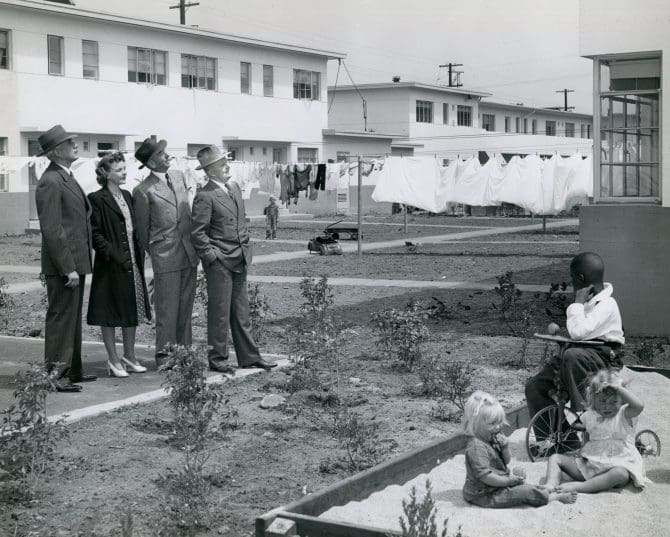
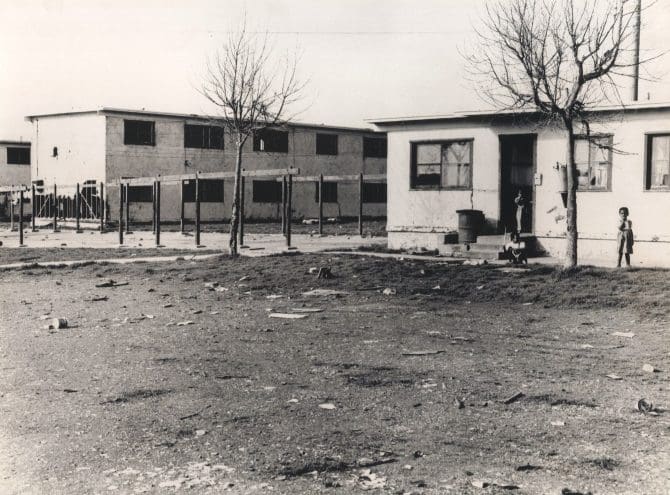
Charlesetta Braggs-Ford Papers. In 1963 Braggs-Ford, together with Savannah A. Bello, founded the Richmond chapter of the Congress of Racial Equality (CORE) to address discriminatory practices in local housing and employment. Richmond CORE focused on issues related to fair employment and housing, schooling, accurate newspaper coverage, and police brutality towards African Americans and other minorities. Committees of the chapter included those on Education, Storm Drainage, and Public Housing. Activities involved working on California Fair Housing initiatives and picketing and negotiation projects with the Bank of America, Safeway, and local department stores.
W. Hazaiah Williams Papers. The papers of theologian, civil rights activist, and educator William Hazaiah Williams Jr. (1930-1999) include subject files on "Housing" (1955-1972), the Rumford Act in the 1963 California Legislature, and conference material from the Re-gentrification Conference of 1979.
Fannie Wall Children’s Home and Day Nursery, Inc. Records. Established in Oakland, California on November 20, 1918 by the Northern Federation of Colored Women’s Clubs, the Fannie Wall Children’s Home and Day Nursery, Inc. was created to care for unhoused, dependent, neglected children from broken homes, and to provide day care for children of working parents. In 1962 the Oakland Redevelopment Agency purchased the property at 815 Linden St. in order to demolish the building for the Acorn Project. The Fannie Wall Children’s Home and Day Nursery, Inc. Records consist of correspondence, reports, meeting and fundraising programs, and newspaper clippings that document the management of the children’s home. [View online]
Black Panther Black Community News Service Collection. The Black Panther Black Community News Service Collection consists of 420 newspapers published by the Black Panther Party between 1967-1980. Each issue was between 16-28 pages and featured a range of articles and op-eds on the activities of the party, Black power, police brutality, communism, and party leadership. [Issues of the The Black Panther are available to view digitally on Alexander Street using your Oakland Public Library card]
Commemorator Newspaper Collection. The Commemorator newspaper was a newspaper printed in South Berkeley from 1990-2013 by the Commemoration Committee for the Black Panther Party and focused on promoting the goals of the Black Panther Party as outlined in its Ten Point Program. In addition to the newspaper, programs of the Commemoration Committee for the Black Panther Party included a Monthly Film Series highlighting demands for education, health care, housing, and jobs, and the Bobby Hutton Literacy Program. [View online]
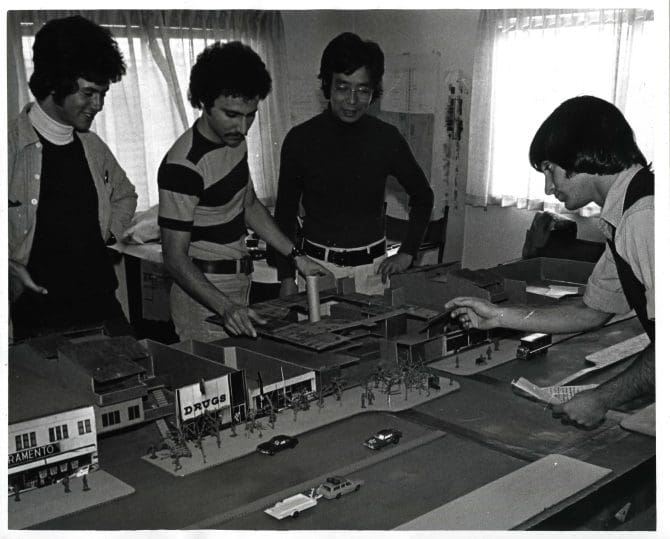
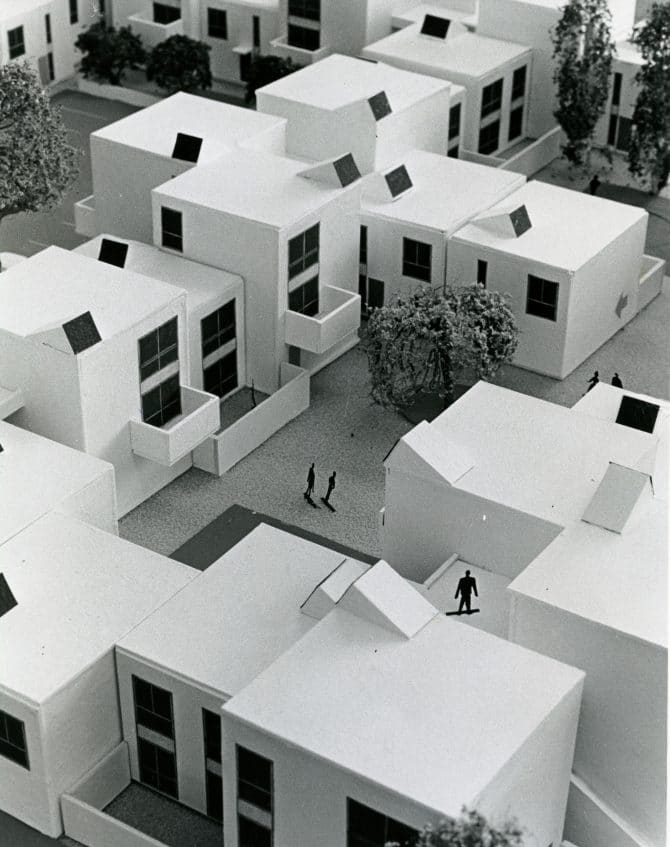
African American Museum & Library at Oakland Vertical File Collection. Selected items include:
- Correspondence and letters pertaining to the ACORN Redevelopment District
- Items from the Oakland Citizens' Committee for Urban Renewal (OCCUR) including the Equal Opportunity in Oakland: Survey of successes and failure final report (1976)
- There goes the neighborhood: a regional analysis of gentrification and community stability in the San Francisco Bay Area (1999)
- Extensive subject files related to housing and fair housing including Berkeley's Model Cities Program and the California Fair Housing Act [The Rumford Act]
- Affordable housing and housing crisis reports by the Alameda County Task Force on Homelessness and various Berkeley/Oakland support services
- "Alameda is our home: African Americans and the struggle for housing in Alameda, California 1860-present," by Rasheed Shabazz (2013)
- and many others
Rhonda White-Warner Papers. Includes Oakland neighborhood arts profiles produced by the Oakland Citizens' Committee for Urban Renewal (OCCUR) on West Oakland / downtown, East Oakland, and North Oakland / Western Hills (undated). OCCUR was founded in 1954 as a (white) citizen group that acted as the advisory group to the City, recommending the creation of the Oakland Redevelopment Agency. In 1969, the Oakland Black Caucus sued OCCUR through the San Francisco office of the Department of Housing and Urban Development (HUD) on the basis that the organization did not represent Oakland’s minority and low-income communities and so these communities were excluded from the redevelopment process. As a response, OCCUR set up a 21-person Board of Directors which included Paul Cobb, Elijah Turner, and other members of the Black Caucus. By 1976, Paul Cobb was appointed as Executive Director of OCCUR.
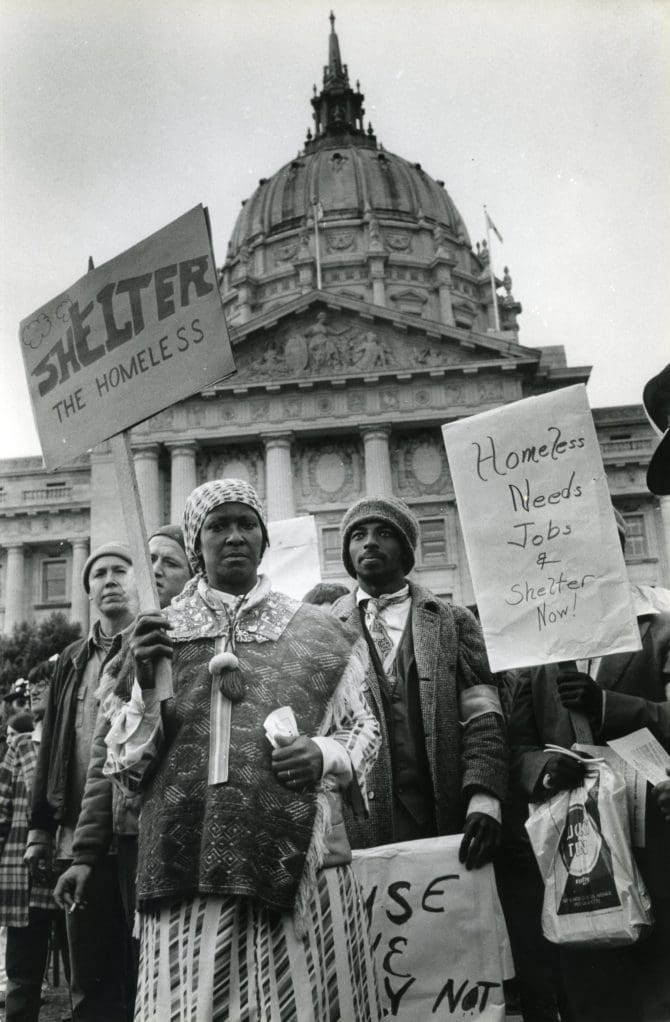
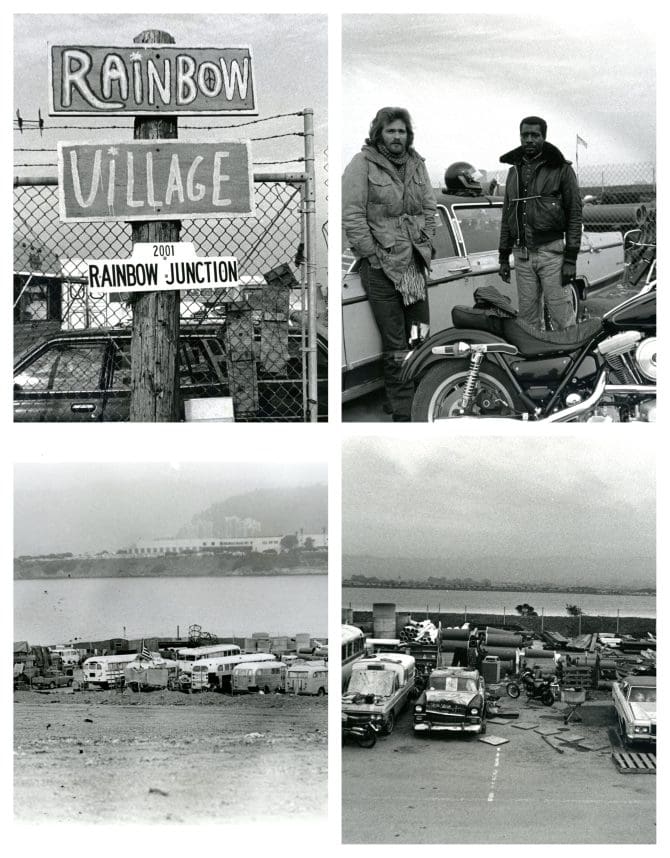
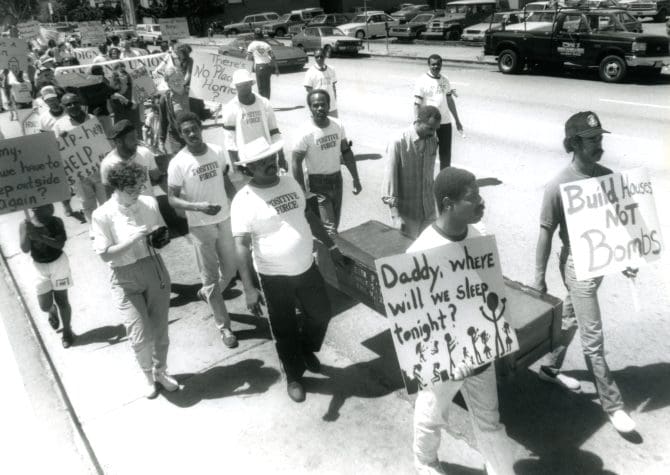
Additional Information
Search the library using the catalog.
Consult AAMLO's finding aids in the Online Archive of California.
We are working to create new resource guides. Have an idea for a new guide? Contact us at aamlo@oaklandlibrary.org.
